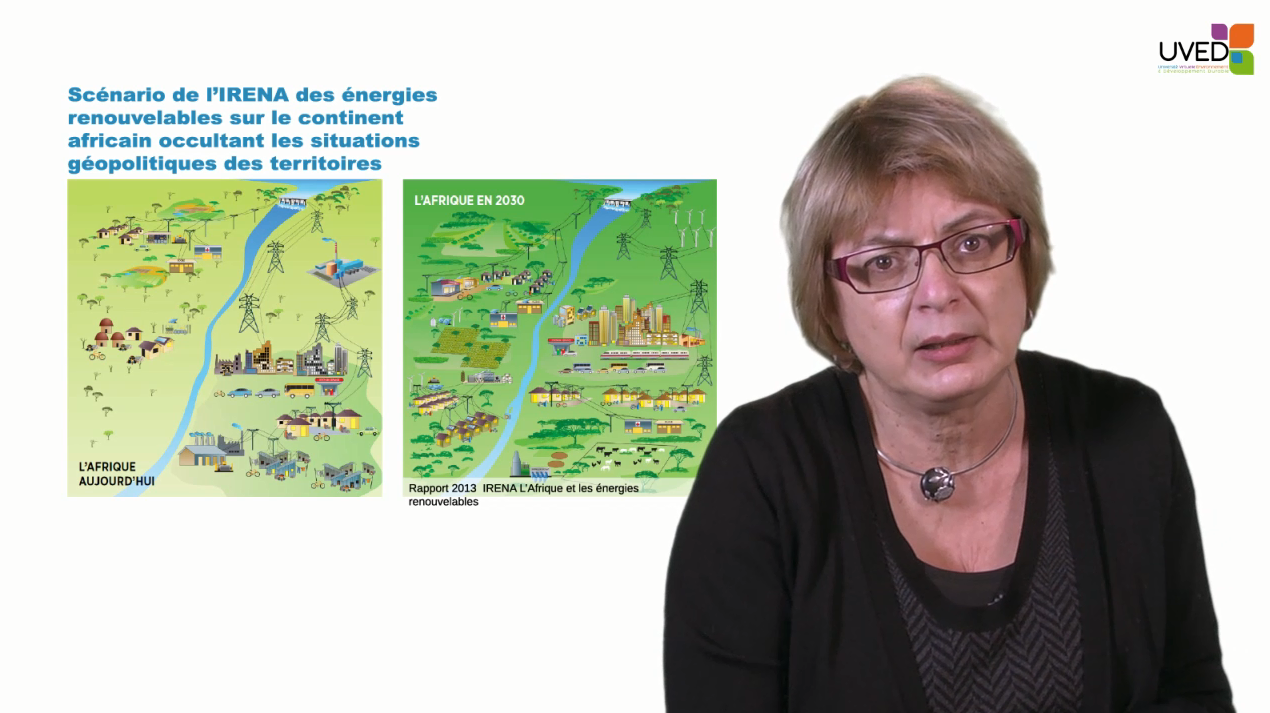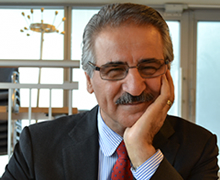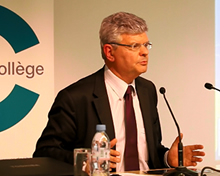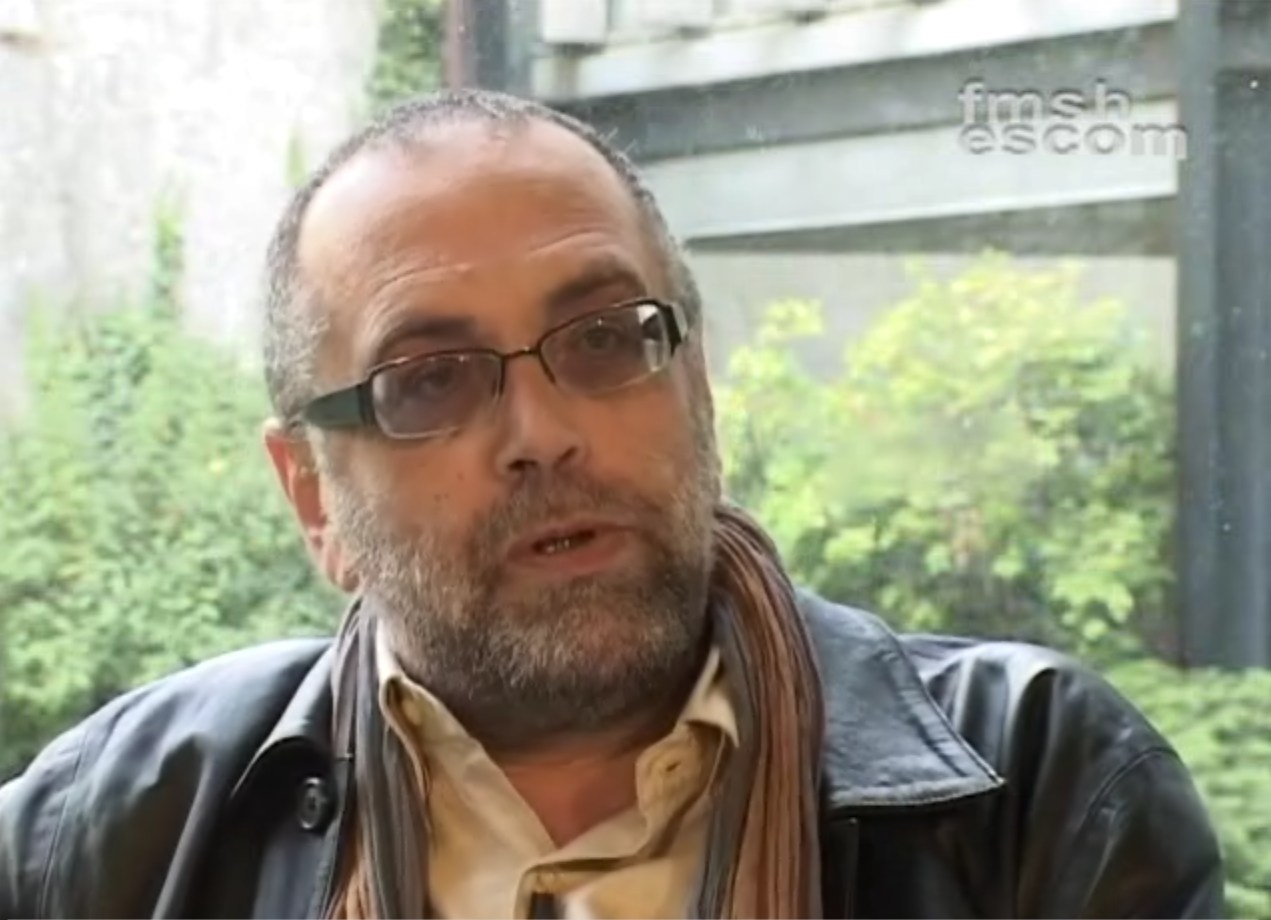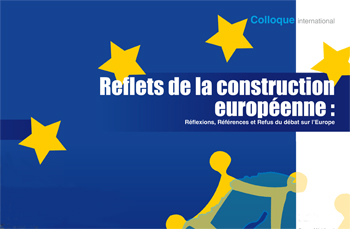Chapitres
- Introduction02'45"
- A life-time story01'50"
- Personal reason to study the origins of WWII03'09"
- What was the decision making process to enter the WWII ?01'41"
- The Political sciences as new, detached view of History analysis01'24"
- Entrance into London School of Economics (LSE) in 1970s in the Department of International Relations01'25"
- Difference between the teaching of International relations in UK and USA: Foreign Policy and analysis in LSE00'34"
- The challenge of a PhD supervisor and its "positive" prejudice. The role of Graham T. Allison's "Essence of Decision: Explaining the Cuban Missile Crisis", 197102'43"
- Meeting Roger Morgan, major figure of European studies in UK (1932-2015) and William Wallace01'53"
- Switching to a new supervisor: Alan Bullock, the author of "Hitler: A Study in Tyranny", 195201'47"
- Switching to a new interest without publishing the results of the thesis research02'02"
- Publishing the PhD thesis: "Cabinet Decisions on Foreign Policy: The British experience, October 1938-June 1941"02'24"
- Intellectual references and key notions: the example of the Historian John Morris Roberts01'10"
- Geographical and cultural ranges as embedded into the society00'46"
- Upon the influence of Roberts, how the international relations politics affects ordinary people's life ?00'34"
- Intellectual references to Sir Michael Howard, the father of strategic studies, Lawrence Freedman, Miles Kahler, Steven Lukes, A.J.P. Taylor, William Wallace, Joseph Frankel, David Vital, Michael Brecher05'18"
- "Decision making": theory on concentric circles01'13"
- The appointment of Professor Susan Strange in 1980s01'57"
- Leadership in 1994 of the Department of International relations at the LSE00'44"
- The Chapter of the post-Cold War, the idea of the end of nation-state and the frenzy of the Globalisation01'02"
- Answer to the Globalisation theory "le défi de la mondialisation"01'30"
- One could not and should not ignore the role of the State01'38"
- Analyse the relation between continuity and change, our job as intellectuals ans social scientists01'17"
- The Relationship between the member-states and European Union02'03"
- Understand the relationship between the member-states and theirs international policies and the collective01'33"
- "The capability-expectations gap or conceptualising Europe's international role" as major point in the European Union politics analysis03'46"
- The Cambridge turn01'40"
- Translation of the Works of a French soldier, war prisoner of the Arbeit Kommando04'20"
- The observation on "How international politics affects domestic life?" applied on contemporary London02'10"
- The changing nature of society, international relations implication02'16"
- References to "Bringing War Home"01'14"
- Dealing with diversity inside of the European Unions05'37"
- Regrets and Hopes00'45"
- Comment a subject of political actuality00'21"
- Britain's relationship with the European Union08'22"
- Two anecdotes about loosing innocence06'03"
- Another career anecdote: A story about the Cold War03'35"
- Dealing with contemporary politics02'16"
- Claims for a red line not to be crossed01'43"
- New generations should find civilised understanding through International relations and politic studies00'36"
Notice
The Changing Nature of Society and its International Relations Implication
- document 1 document 2 document 3
- niveau 1 niveau 2 niveau 3
Descriptif
Within this interview Christopher HILL goes back to his scientific background in History: a very personal reason to study the origins of World War II (WWII). The main problem he is revealing is the question: “What was the “decision making” process to enter the WWII?”. Hill is approaching then the Political science as new, detached view, of History analysis. His entrance into London School of Economics(LSE) in 1970s in the Department of International Relations marks an introduction of Hill's special teaching area: Foreign Policy and analysis. The lifetime experience of Hill shows the example of a challenging relationship between a PhD supervisor and a PhD student.
Digging in his research experience, Hill is treating the geographical and cultural ranges as embedded into the society through the Political subject. In the same line of thoughts and under the influence of Roberts, Hill is seeking to understand how the international relations politics affects ordinary people's life, especially trough the example of the War. He is analysing the case of the post-Cold war period imposing the idea of the end of the nation-state and the frenzy of the Globalisation.
However, according to Hill, one could not and should not ignore the role of the State. He defends the idea that the job of the intellectuals and the social scientists is to analyse the relation between continuity and change. And Hill observes that process in the relationship between the member-states and the European Union. He is pursuing his analysis through the observation on "How international politics affects domestic life?" applied on contemporary London and assumes that the changing nature of society has international relations implication.
Two anecdotes of the end of the interview are witnessing the great outcome of the career of Christopher Hill: the first one is about loosing innocence. The second: a story about the Cold War.
Christopher Hill is a Sir Patrick Sheehy Professor of International Relations, Department of Politics and International Studies (POLIS), University of Cambridge, UK and a Fellow of Sidney Sussex College.
His publications are in the areas of foreign policy analysis and general International. Most recent of them being:
- The Art of Attraction: Soft Power and the UK’s Role in the World(with Sarah Beadle), British Academy, 2014
- The National Interest in Question: Foreign Policy in Multicultural Societies, OUP 2013
- National and European Foreign Policies, edited with Reuben Wong, Routledge 2011
- The European Union in International Relations, edited with Michael Smith, 2nd edition 2011
More Info: http://www.polis.cam.ac.uk/
http://www.sid.cam.ac.uk/
http://www.britac.ac.uk/
http://ukcatalogue.oup.com/product/9780198745358.do
Dans la même collection
-
La réinvention des genres littéraires à l’ère du numérique
DobrevaNeliGefenAlexandreL'entretien porte sur un récit de construction d'une carrière de chercheur à partir de le science littéraire. entre des questionnement internes sur la fin de la fiction, le chercheur et professeur
-
Archéologie de l'Islam à l’image post-soviétique
БобровниковВладимир ОлеговичDobrevaNeliDans cet entretien Vladimir Bobrovnikov revient à ses débuts de carrière et explique son cheminement jusqu'à son projet actuel : “En dévoilant l’islam dans le Caucase russe : images et discours
-
"Chèque Tzanck" de Duchamp
DobrevaNeliReadPeterDans cet entretien, Peter READ, professeur de littérature française moderne et d'arts visuels à l’Université de Kent, se livre à un véritable autoportrait. D'une enfance passée dans un environnement
-
Entretien avec Sonia MALUF, anthropologue, Professeure Associée à l’Universidade Federal de Santa C…
DobrevaNeliMalufSônia WeidmerCet entretien révèle la carrière d’une militante citoyenne pendant la dictature au Brésil. D'abord journaliste, puis, et toujours, anthropologue engagée sur le terrain, Sonia MALUF, par le biais de
-
Entretien avec Barkahoum FERHATI, Directrice de recherche au CNRPAH d’Alger (Algérie)
DobrevaNeliFerhatiBarkahoumDans cet entretien, Barkahoum FERHATI dévoile les débuts de sa carrière et se livre ainsi à un récit très personnel reliant événements historiques et destins individuels. Architecte de formation,
-
Entretien avec Laura Pisano, historienne, Professeur Ordinario d’Histoire du Journalisme, Universit…
DobrevaNeliPisanoLauraL'entretien remonte les débuts de carrière de Laura Pisano, ses engagements pédagogiques et ses activités de metteur en scène.
-
Cartographie ancienne et culture visuelle. Entretien avec LIN Tien-Jen, chercheur au National Palac…
DobrevaNeliLin-RosolatoEsther林天人L’entretien révèle une passion de l’espace et de la culture visuelle matérielle devenue un mode de vie pour LIN Tien-Jen. Historien de formation, LIN Tien-Jen parcourt le monde à la recherche des
-
Santé internationale et action humanitaire. Entretien avec Jean-Daniel Rainhorn
RainhornJean-DanielDobrevaNeliJean-Daniel RAINHORN fait partie de la génération de l’après Seconde Guerre mondiale, une vraie chance pour faire des études et avoir un emploi, une chance d'avoir pu choisir ce qu’on avait envie de
-
Entretien avec Galina Kaninskaia, titulaire de la chaire d’histoire universelle de l’Université d’E…
DobrevaNeliKaninskaiaGalinaCet entretien porte sur le parcours de Galina KANINSKAIA, historienne, contemporanéiste, diplômées de deux grandes universités russes : l’Université d’Etat de Iaroslavl (1977) ; l’Université
-
Entretien avec Stefania Tarantino, philosophe, chercheure à l’Université l'Orientale de Naples, Ita…
DobrevaNeliTarantinoStefaniaCet entretien porte sur l'expérience de recherche de Stefania Tarantino, femme philosophe et musicienne, dans le domaine du genre, autour des thèmes de L’originalité des femmes philosophes du XXe
-
Entretien avec Stéphane Zuber, économiste, chargé de recherche au CNRS
DobrevaNeliZuberStéphaneL’entretien porte sur le parcours de carrière de Stéphane ZUBER, aujourd’hui chercheur avec expérience internationale : Université de Princeton aux États-Unis, Université de Californie à Berkeley aux
-
Entretien avec Imma Tubella, sociologue, Présidente de l’Université Ouverte de Catalogne, CEM-FMSH
Tubella CasadevallImmaDobrevaNeliL’entretien porte sur la carrière d’Imma Tubella les motifs et les enjeux qu’elle voyait dans une perspective de sa réalisation comme femme universitaire. Des références intellectuelles sont évoquées
Avec les mêmes intervenants et intervenantes
-
La réinvention des genres littéraires à l’ère du numérique
DobrevaNeliGefenAlexandreL'entretien porte sur un récit de construction d'une carrière de chercheur à partir de le science littéraire. entre des questionnement internes sur la fin de la fiction, le chercheur et professeur
-
Archéologie de l'Islam à l’image post-soviétique
БобровниковВладимир ОлеговичDobrevaNeliDans cet entretien Vladimir Bobrovnikov revient à ses débuts de carrière et explique son cheminement jusqu'à son projet actuel : “En dévoilant l’islam dans le Caucase russe : images et discours
-
"Chèque Tzanck" de Duchamp
DobrevaNeliReadPeterDans cet entretien, Peter READ, professeur de littérature française moderne et d'arts visuels à l’Université de Kent, se livre à un véritable autoportrait. D'une enfance passée dans un environnement
-
Entretien avec Sonia MALUF, anthropologue, Professeure Associée à l’Universidade Federal de Santa C…
DobrevaNeliMalufSônia WeidmerCet entretien révèle la carrière d’une militante citoyenne pendant la dictature au Brésil. D'abord journaliste, puis, et toujours, anthropologue engagée sur le terrain, Sonia MALUF, par le biais de
-
Entretien avec Barkahoum FERHATI, Directrice de recherche au CNRPAH d’Alger (Algérie)
DobrevaNeliFerhatiBarkahoumDans cet entretien, Barkahoum FERHATI dévoile les débuts de sa carrière et se livre ainsi à un récit très personnel reliant événements historiques et destins individuels. Architecte de formation,
-
Entretien avec Laura Pisano, historienne, Professeur Ordinario d’Histoire du Journalisme, Universit…
DobrevaNeliPisanoLauraL'entretien remonte les débuts de carrière de Laura Pisano, ses engagements pédagogiques et ses activités de metteur en scène.
-
Cartographie ancienne et culture visuelle. Entretien avec LIN Tien-Jen, chercheur au National Palac…
DobrevaNeliLin-RosolatoEsther林天人L’entretien révèle une passion de l’espace et de la culture visuelle matérielle devenue un mode de vie pour LIN Tien-Jen. Historien de formation, LIN Tien-Jen parcourt le monde à la recherche des
-
Santé internationale et action humanitaire. Entretien avec Jean-Daniel Rainhorn
RainhornJean-DanielDobrevaNeliJean-Daniel RAINHORN fait partie de la génération de l’après Seconde Guerre mondiale, une vraie chance pour faire des études et avoir un emploi, une chance d'avoir pu choisir ce qu’on avait envie de
-
Entretien avec Galina Kaninskaia, titulaire de la chaire d’histoire universelle de l’Université d’E…
DobrevaNeliKaninskaiaGalinaCet entretien porte sur le parcours de Galina KANINSKAIA, historienne, contemporanéiste, diplômées de deux grandes universités russes : l’Université d’Etat de Iaroslavl (1977) ; l’Université
-
Entretien avec Stefania Tarantino, philosophe, chercheure à l’Université l'Orientale de Naples, Ita…
DobrevaNeliTarantinoStefaniaCet entretien porte sur l'expérience de recherche de Stefania Tarantino, femme philosophe et musicienne, dans le domaine du genre, autour des thèmes de L’originalité des femmes philosophes du XXe
-
Entretien avec Stéphane Zuber, économiste, chargé de recherche au CNRS
DobrevaNeliZuberStéphaneL’entretien porte sur le parcours de carrière de Stéphane ZUBER, aujourd’hui chercheur avec expérience internationale : Université de Princeton aux États-Unis, Université de Californie à Berkeley aux
-
Entretien avec Imma Tubella, sociologue, Présidente de l’Université Ouverte de Catalogne, CEM-FMSH
Tubella CasadevallImmaDobrevaNeliL’entretien porte sur la carrière d’Imma Tubella les motifs et les enjeux qu’elle voyait dans une perspective de sa réalisation comme femme universitaire. Des références intellectuelles sont évoquées
Sur le même thème
-
Oksana Mitrofanova - Diplomatic links between Ukraine and France
MitrofanovaOksanaOksana Mitrofanova, chercheuse ukrainienne, spécialiste de l'histoire et des relations politiques internationales, en particulier entre l'Ukraine et la France, nous éclaire sur les liens diplomatiques
-
Napoléon et l’Islam
BiliciFarukRomantique représentant des Lumières en faveur de l’islam, fin politique pour instrumentaliser les sentiments religieux, lecteur assidu des « Ruines » de Volney, de «Mahomet politique» de Savary et de
-
Droit et démocratie chez Carl Schmitt
KiesowRainer MariaSimardAugustinGrangéNinonMeyerDanielC'est à une rencontre sur l’histoire politique des concepts du droit (légalité/légitimité, loi/jugement, etc.) (re)pensés par Carl Schmitt et étroitement liés au Constitutionnalisme que nous vous
-
Construction académique d'un couple (ASR n°4 - CEGIL)
Plus qu'un sujet de recherche, le FACAC (France-Allemagne, construction académique d’un couple) mené par les chercheurs du CEGIL (Centre d’Etudes Germaniques Interculturelles de Lorraine) est une
-
Forum Nîmois - Charles GIDE - VEDRINE - 31 mai 2016
L’activité de notre association Charles Gide reprend, pour son cycle de conférences "le forum Nîmois Charle GIDE" Jean MATOUK président de l'association et professeur des universités reçoit, le 31 mai
-
["Comprendre pour entreprendre", n° 13] "Mesures Fiscales : la triche sera-t-elle encore possible ?…
DebatOlivierhttp://magazine.ut-capitole.fr/fiscalite-internationale-anticiper-les-nouvelles-regles-593708.kjsp
-
7. Géopolitique des énergies renouvelables
LefèvreMarie-AnneDans cette vidéo, Marie-Anne Lefèvre revient sur les risques de conflits et de rivalités liés au développement des énergies renouvelables, du local au global.
-
Entretien avec Jean-Luc RACINE, géographe et géopoliticien, Directeur de recherche émérite au CNRS
StockingerPeterRacineJean-LucAprès avoir contextualisé les origines historiques de la Fondation Maison des Sciences de l'Homme, Jean-Luc RACINE nous parle de la place de la FMSH sur le plan international et nous explique son
-
Rencontre avec Mala Bakhtyar : Le gouvernement kurde et les changements sociaux
TouraineAlainBataillePhilippeWieviorkaMichelBakawanAdelBakhtyarMalaFoucherMichelJolyDanièleLa Fondation Maison des sciences de l'Homme et le CADIS ont accueilli le vendredi 20 juin 2014 Monsieur Mala BAKHTYAR, pour une rencontre avec des intellectuels et des chercheurs français, suivie du
-
La redistribution des cartes dans la géopolitique mondiale
BouinOlivierCaraçaJoãoFoucherMichelConférence inaugurale de Michel FOUCHER, titulaire de la chaire Chaire Géopolotique mondiale du Collège d'études mondiales. La redistribution des cartes dans la géopolitique mondiale La
-
Les communautés francophones au Canada
ThériaultJoseph YvonJoseph-Yvon THERIAULT est professeur au département de sociologie de l'Université du Québec à Montréal (UQAM). Il est titulaire de la chaire de recherche du Canada en mondialisation, citoyenneté et
-
Reflets de la construction européenne. Réflexions, références, refus du débat : tables rondes
VayssièreBertrandReflets de la construction européenne. Réflexions, références et refus du débat sur l'Europe : tables rondes. 1. L'adhésion populaire à l'Europe dans le Sud-Ouest, mythe ou réalité ? 2. Quelle place




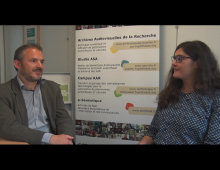
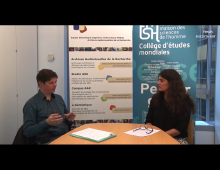
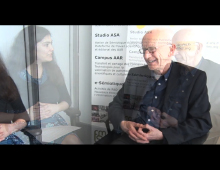
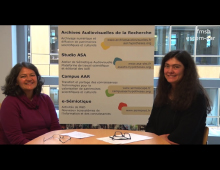
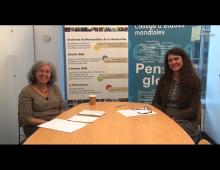
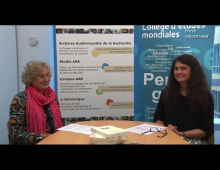
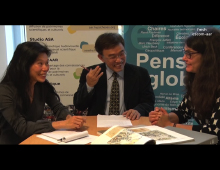
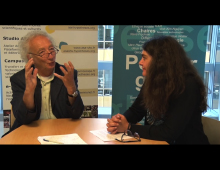
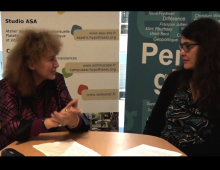
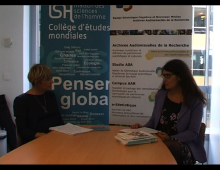
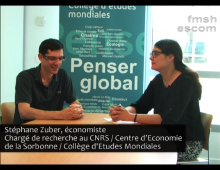
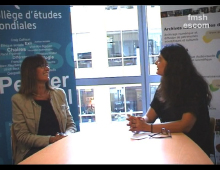


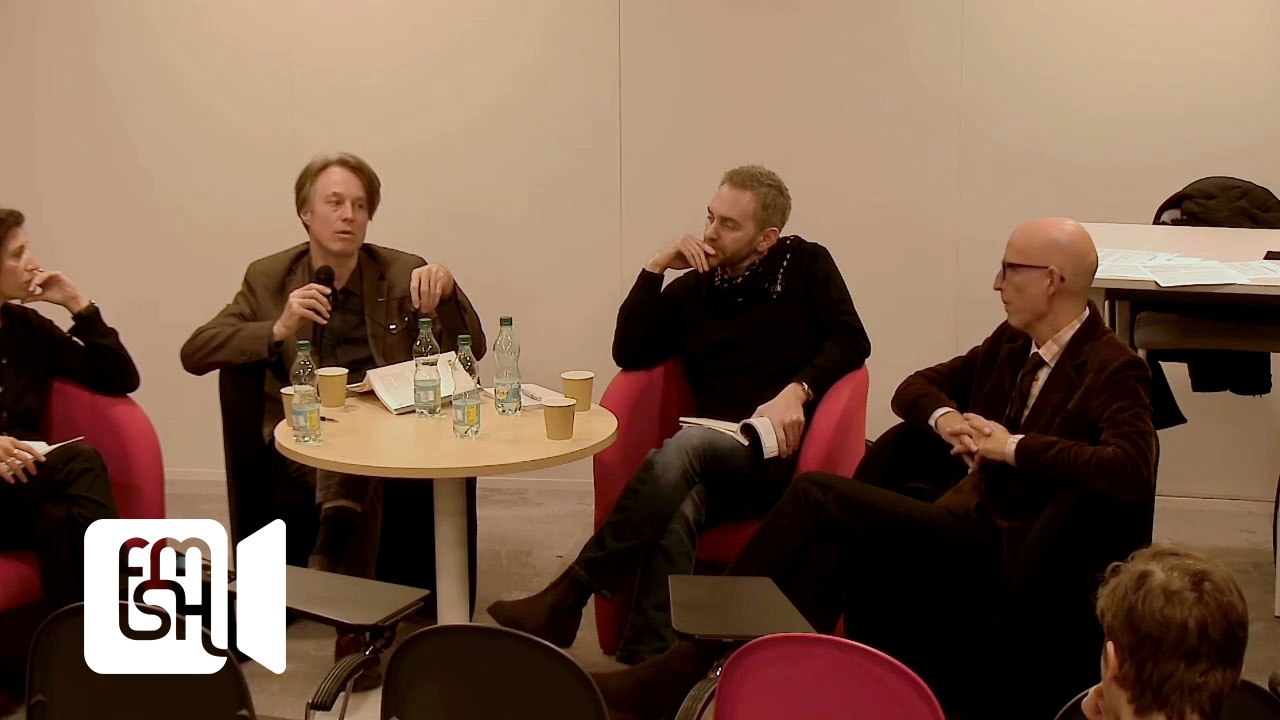
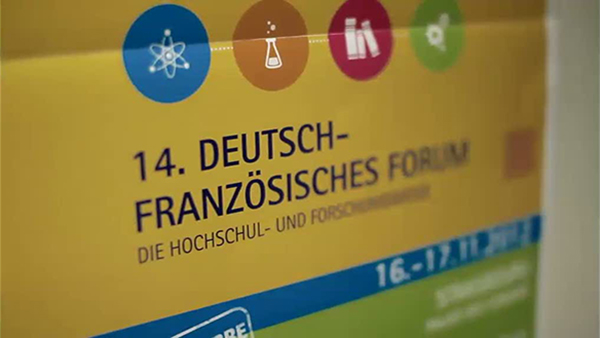

![["Comprendre pour entreprendre", n° 13] "Mesures Fiscales : la triche sera-t-elle encore possible ?" (Olivier Debat)](https://vod.canal-u.tv/videos/media/images/ut1c/_24871/vignette.jpg)
